Acrylic Paints
We’re your one-stop shop for affordable acrylic paint supplies from leading brands to bring your creative vision to life. We have covered your acrylic painting needs with one of the largest ranges available online in Australia. From individual tubes to sets of assorted colours, you will find quality acrylic paint at affordable prices at Discount Art n Craft Warehouse.
Leading acrylic paint brands such as Chromacryl, Reeves, Winsor & Newton, Liquitex and Matisse are available to order online today, with fast delivery throughout Australia.
Acrylic paint is water-based and made of pigment suspended in acrylic polymer emulsion. Though commonly associated with canvas painting, it’s ideal for sculpture, models and crafts, making it a top choice for creatives of all levels.
Also available at Discount Art n Craft Warehouse is a wide range of acrylic painting accessories, such as acrylic paint brushes, a wide range of canvas products, easels for your painting space as well as a huge range of acrylic mediums and varnishes.
Jasart Byron Acrylic Paint Set
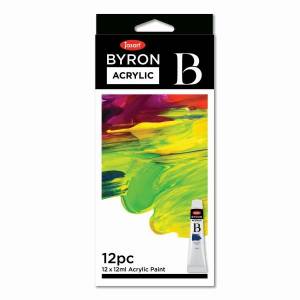
Acrylic Paints
NOW $16.50
Jasart Byron Acrylic 12ml Paint Set 24
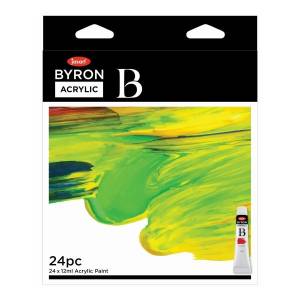
Acrylic Paints
NOW $24.95
Jasart Byron Acrylic Fluorescent Paint 75ml Set 5
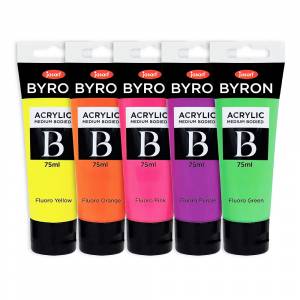
Acrylic Paints
NOW $19.25
Jasart Byron Acrylic Glitter Paint 75ml Set 5
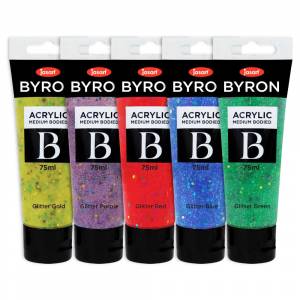
Acrylic Paints
NOW $19.25
Jasart Byron Acrylic Metallic Paint 75ml Set 5
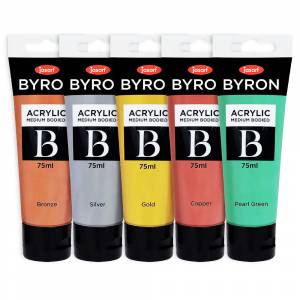
Acrylic Paints
NOW $19.25
Jasart Byron Acrylic Paint 75ml Set 5
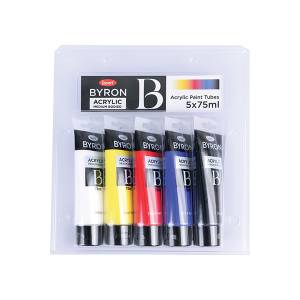
Acrylic Paints
ONLY $19.95
Jasart Byron Acrylic Paint Set 36
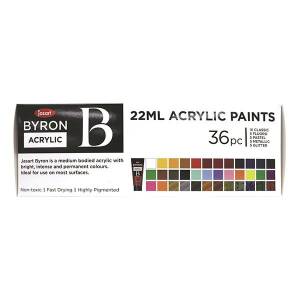
Acrylic Paints
NOW $52.50
Jasart Byron Acrylic Paint 75ml Set 10
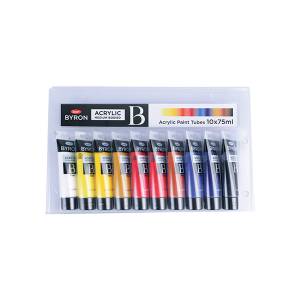
Acrylic Paints
ONLY $39.50
Jasart Byron Acrylic Pastel Paint 75ml Set 5
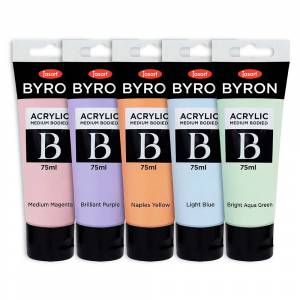
Acrylic Paints
NOW $19.40
Jasart Acrylic Paint Box Set of 20
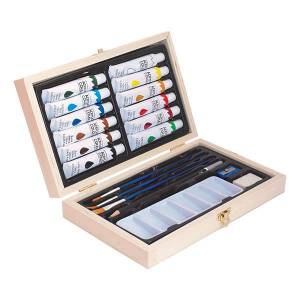
Acrylic Paints
NOW $22.50
Jo Sonja's Artists' Metallic Set 6 x 20ml
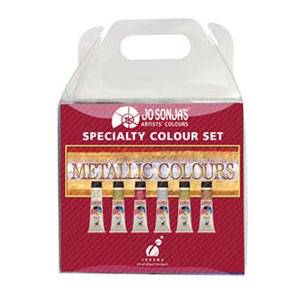
Acrylic Paints
NOW $26.95
Lefranc & Bourgeois Flashe Vinyl Paints 125ml
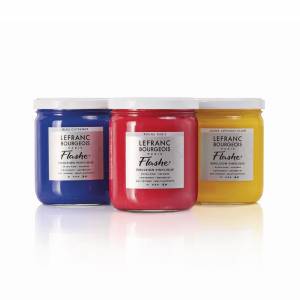
Acrylic Paints
FROM $41.65
FAQs about Acrylic Paints
What are the differences between acrylic, watercolour, and oil paint?
Acrylic:
Composed of a blend of pigments and acrylic polymer, it typically has a denser consistency than watercolour or oil paint. Moreover, it is generally considered safer, especially for children.
Watercolour:
Made from pigment, gum arabic, and water, watercolours are known for their lighter, more fluid application. They provide a unique versatility that caters to specific artistic styles.
What are some tips for using acrylic paint?
✓Blend or mix it with other mediums, such as gels or pastes, to create rich textures.
✓Artists who prefer to work with oil paints can blend acrylic paint with oil mediums for unique effects, such as glazing.
✓Experiment with different techniques and brushes. Changing your brush size or playing with technique can add levels to your artwork.
✓Proper storage once you are finished will help you get the most out of your supplies. Keep the paints tightly sealed, away from heat and moisture in a cool place where they are not exposed to light.
How long does it take acrylic paint to dry?
The drying time generally takes about 12 to 24 hours after application. However, it’s important to note this is just a general guideline and the dry time depends on a number of factors, including the thickness of the paint layer, the humidity in the air, and the temperature of the room.
What other art supplies are needed when using acrylic paint?
- A variety of brushes.
- Palettes for mixing colours.
- Sponges or palette knives for creating unique effects.
- Surfaces (canvas, paper, or whatever you plan on decorating.
- Easels to hold your canvas.
What are some things to avoid while using acrylic paint?
Navigating around common missteps can vastly improve your experience with acrylic paint. Be cautious not to overwork the painting after the paint has dried to prevent cracking or flaking. Likewise, avoid loading too much paint onto your brush as this can lead to bleeding or running. And finally, remember acrylics continue to dry post-completion, so it's usually recommended to allow a 24-hour gap before adding extra layers to your canvas.
Benefits
- Quick drying - Finish your masterpiece fast with less than two hours of dry time. Further 'curing' of up to two weeks ensures it's fully dry.
- Versatility - Useable on canvas, paper, wood and metal. Some even work on fabrics and glass.
- Durability - The water-resistant film protects against yellowing, fading and cracking.
- Easy to clean - Easiest to clean when wet, so immediately wash your brushes and palette. Act fast to get paint-splashed clothes straight into the laundry. Once dried, some alcohol-based products may still be able to remove the stain.
Choosing acrylic paint
First, consider how much you’ll need —a small sculpture might only need a 100ml tube, whereas a large canvas could call for a 2L bottle. Then, think about the finish. Whether it's matte or glossy, heavy-bodied, artist-grade, eco-friendly, or glitter, we're sure to stock it.
We stock a wide range of art and craft supplies for professional artists, students and hobby painters. Shop our online store to find an acrylic paint set and all the essentials matched to your needs and budget, delivered to your door Australia-wide.
